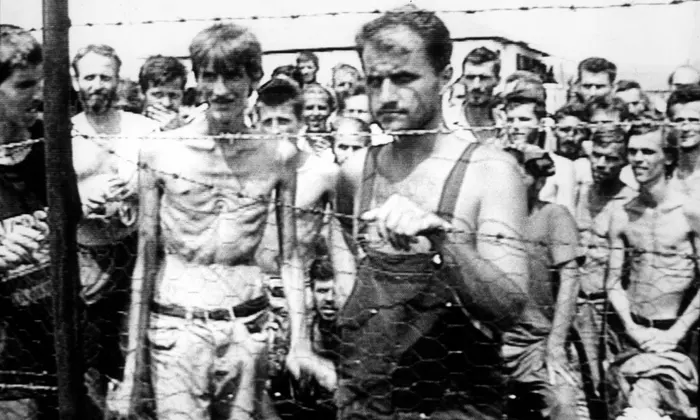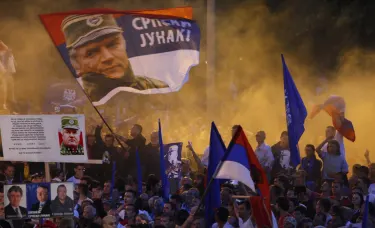Why Bosnia's Capital is riddled with Bullets
- Haris T
- May 7, 2023
- 3 min read
Bosnia, July 1995 - 8,372 men and boys were rounded up and killed in mass firing squads. 20,000 expelled from their homes. Hundreds of women abused in ways unimaginable. Europe saw concentration camps on its soils for the first time since the Holocaust. Hundreds of years of Islamic civilisation in just this one city, wiped. Now it remains a ghost town. A town which remains almost void of its Muslim population. This town - Srebrenica.
Srebrenica wasn’t the only location which saw systematic extermination, it was just one of many cases of ethnically motivated killings of Muslims in Bosnia from 1992-1995. As the Socialist Republic of Yugoslavia disintegrated in the 1990s, Serbia, led by President Slobodan Milosevic, made efforts to seize as much power as possible while Yugoslavia collapsed. He reignited centuries old ethnic tensions and perused a policy of carving a greater Serbian state from: Croatia, Bosnia, Vojvodina, Montenegro and Kosovo. Ethnic minority Serbs living amongst these regions began a genocide, "purifying" the Balkans through mass murders, systematic raping and forced displacements.
As Bosnia attempted to secede from the dying Yugoslav state in 1992, ethnic Serbs through the help of the Serbian controlled Yugoslav army, began hacking a Serbian nation out of Bosnia - the Republika Srbska. At the dawn of 1992, Sarajevo would be under military siege for 4 brutally long years whilst heavy artillery and sniper fire was purposefully rained down upon the innocents below. The objective - to make the Muslims "mad" - as instructed by Ratdko Miladic, a Serb officer. The Serbs, to force the Bosnian Muslims into submission, would make this capital city a playground for trigger happy murderers. What is even more alarming for those of us residing in the western world is that dozens of wealthy Europeans and Americans journeyed to Sarajevo and stationed themselves in the mountains, just to go "hunting", all be it they were hunting and killing Bosnians, treating it as a sport.
Death had been brought to the streets of Sarajevo. Those same streets which bore the responsibility for the catalyst of ww1, where the Serb nationalist assassinated the Arch Duke in 1914, the same streets which echoed the call to prayer of all the people of the book and the same streets which had been plastered with Swastikas during the German occupation in ww2. Yet the inhabitants defied all odds and refused to give up their honour. They could not let their city fall once more to barbarism, so they endured this nightmare whilst the international community watched on. The siege of Sarajevo become the longest siege modern history. Unbelievably, this occurred a mere 27 years ago from today.
In November 1995, the Dayton agreements were signed and large chunks of Bosnia were handed over for the ethnic Serbs to govern. The conflict was never solved, it was merely frozen. And still today, venturing into the Republika Srbska, it isn't hard to notice radical Serb nationalism in the very places which Bosnian Muslims were massacred. Radtko Miladic - the butcherer of Bosnia and trialled "war criminal" has now become a "War Hero" in Serbia.
To conclude, during my time in this country, I have seen things which will forever be engraved in my memories, both good and bad. I spoke and met with many survivors, not just from the siege but also one of the very few survivors of Srebrenica - Nedzad Avdic. My findings will one day be published in the form of a documentary. However, in the mean time, I suggest watching the lecture I delivered on Bosnia's dark chapter at PMCC.
But please, pray the Almighty grants me the strength and wisdom to honour the memory of those who sacrificed everything for this noble cause. Let the echoes of their unspoken stories ring loud and clear, that their sacrifice may never be forgotten.

"When you go through it all and endure it, when you rise again after a hundred stumbles, when you give up false hope and comfort and clench your teeth to openly face the truth, then you realize that the whole meaning of life is to fight evil."
- Alijah Izetbegovic, first president of independent Bosnia
















Comments